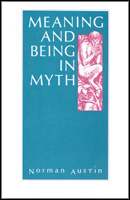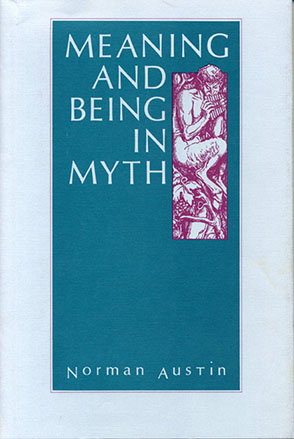Meaning and Being in Myth
Norman Austin
“Austin’s prose is as lively and engaging as it is accurate and rigorous, a combination that is rare in scholarly writing.”
- Description
- Reviews
- Subjects
Norman Austin has organized his analysis of classical Greek myths around Lacan's dichotomy between (ineffable) Being and the meanings imposed upon Being by culturally determined signifiers. The primary signifiers in myth (the gods), as projections of contradictory meanings, impel human consciousness in contradictory directions: toward heroic self-realization, on the one hand, and into the fear, guilt, and despair resulting from failure, on the other. The gods both reveal and occlude that which they signify—the signified; ultimately, Being itself.
Austin includes one chapter on the father's ghost in Shakespeare's Hamlet, and another on Albert Camus's The Stranger, as examples of the power of mythical archetypes to reveal and occlude Being, even when the apparatus of gods has been excluded.
Despite their pessimism, ancient myths also affirm that the paradoxes are not insoluble. Austin concludes by outlining the profile of the Universal Self intimated in myth, religion, and philosophy as the joint venture of the world realized in consciousness, consciousness realized in consciousness, and consciousness realized in the world.
“Austin’s prose is as lively and engaging as it is accurate and rigorous, a combination that is rare in scholarly writing.”
Mailing List
Subscribe to our mailing list and be notified about new titles, journals and catalogs.




